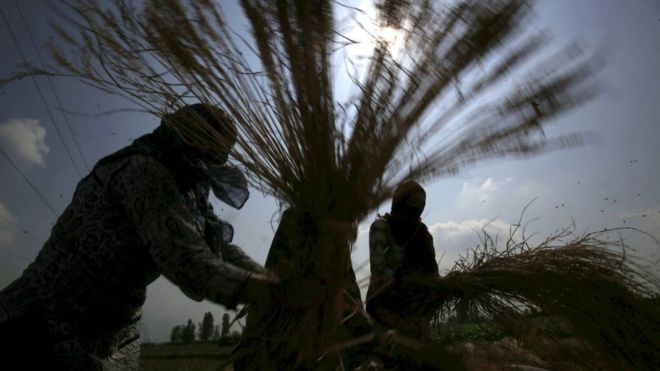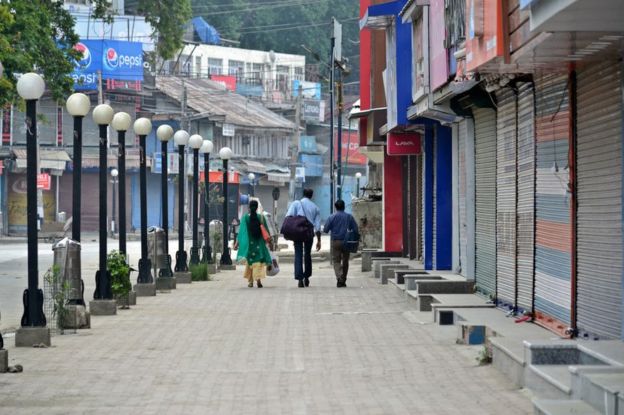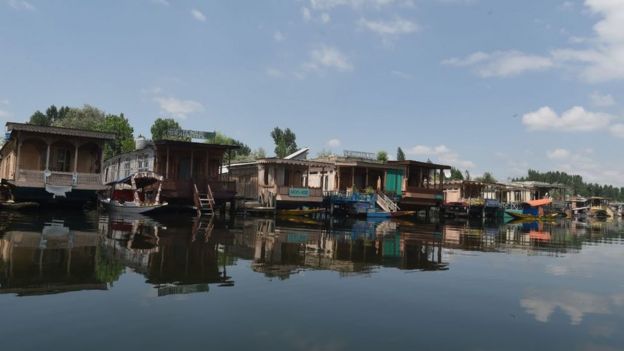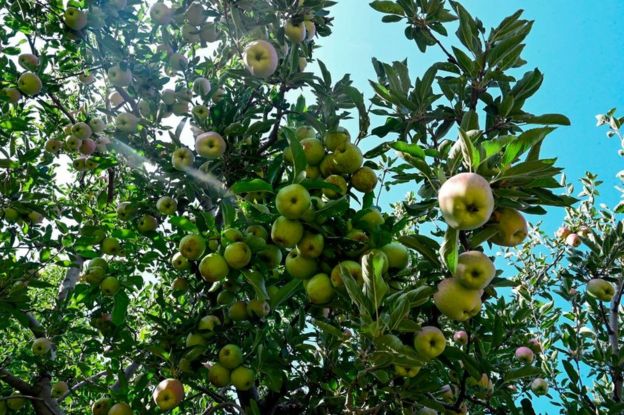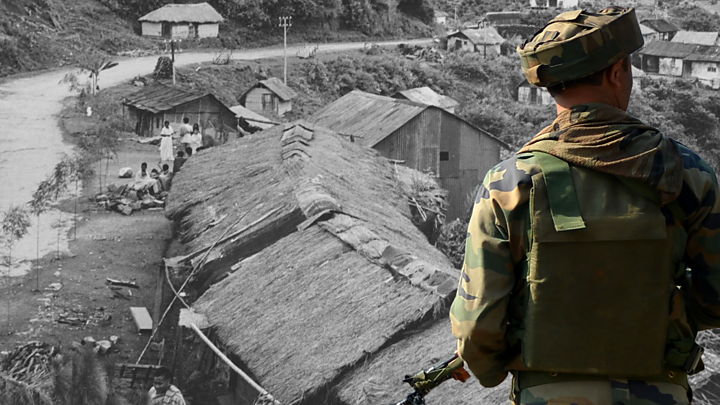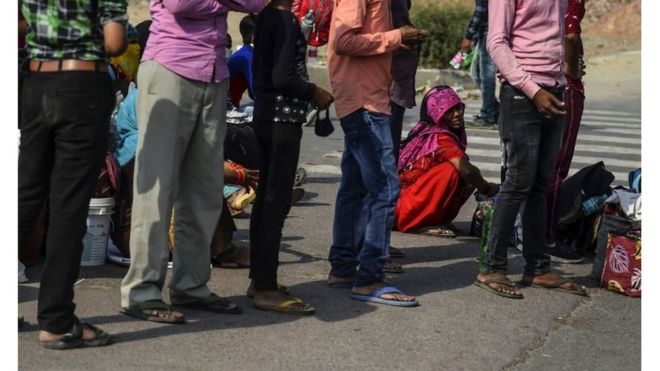 Image copyright EPA
Image copyright EPAIndia will provide free food to migrants for two months as part of a $266bn (£216bn) economic plan to combat the effect of the Covid-19 lockdown.
Finance Minister Nirmala Sitharaman said grain supplies worth $463m would benefit 80 million migrants.
Tens of thousands of migrants have been fleeing cities on foot, trying to return to their villages.
Many of these informal workers who form the backbone of city economies feared they would starve in the lockdown.
- Dark truth of India’s post-lockdown liquor lines
- How police won hearts with cakes, songs and sacrifice
- The freed prisoner unable to return home
The plight of these workers, many of whom have been walking for days without adequate food and water, has caused widespread anger in the country.
Train and bus services were shut during the lockdown and even though some have been restarted for migrants, many say they cannot afford the fare and are unsure if they will be accommodated on them due to social distancing norms.
Several have died in making the journey, including 16 migrants who were run over by a train while they were sleeping on the railway tracks.
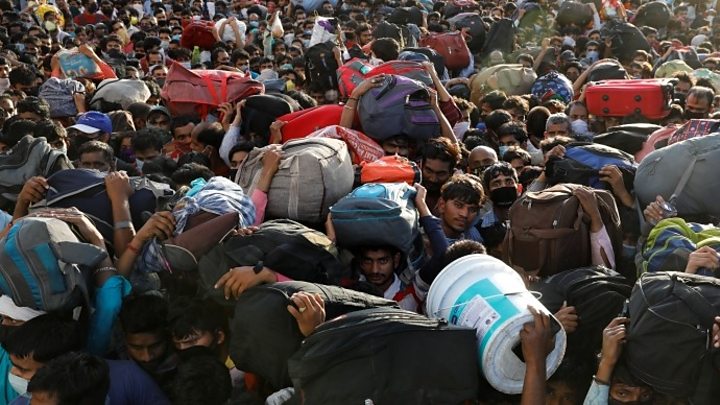
Ms Sitharaman also announced that workers would be able to use ration cards – usually only valid at village level – anywhere in the country regardless of where it was issued.
The ration cards usually entitle holders to subsidised food.
She added that the move towards portable cards would benefit nearly 670 million people and will be completed by March next year.
The government will also provide affordable housing for migrant labour by converting existing vacant government funded housing complexes, among other things.
The announcements on Thursday – the second tranche of a series of economic stimulus measures – were aimed at migrant workers, street hawkers, small traders and small farmers.

- A SIMPLE GUIDE: How do I protect myself?
- AVOIDING CONTACT: The rules on self-isolation and exercise
- HOPE AND LOSS: Your coronavirus stories
- LOOK-UP TOOL: Check cases in your area
- VIDEO: The 20-second hand wash
- STRESS: How to look after your mental health

The full details of the economic package, which is equivalent to 10% of India’s gross domestic product, will be known in some days as the government is announcing a different tranche every day.
Ms Sitharaman’s announcements also included details of “special credit” to be provided to five million street hawkers who have been forced to cease working over the last month and a half.
To help farmers, the government also announced an emergency $4bn “working capital funding” which would benefit some 30 million small farmers to meet crop requirements in May and June
In March, India said it would provide around 1.7 trillion rupees in direct cash transfers and food security measures, mainly for the poor.
However, Mr Modi’s administration had been accused in some quarters of not having done enough.
Source: The BBC


